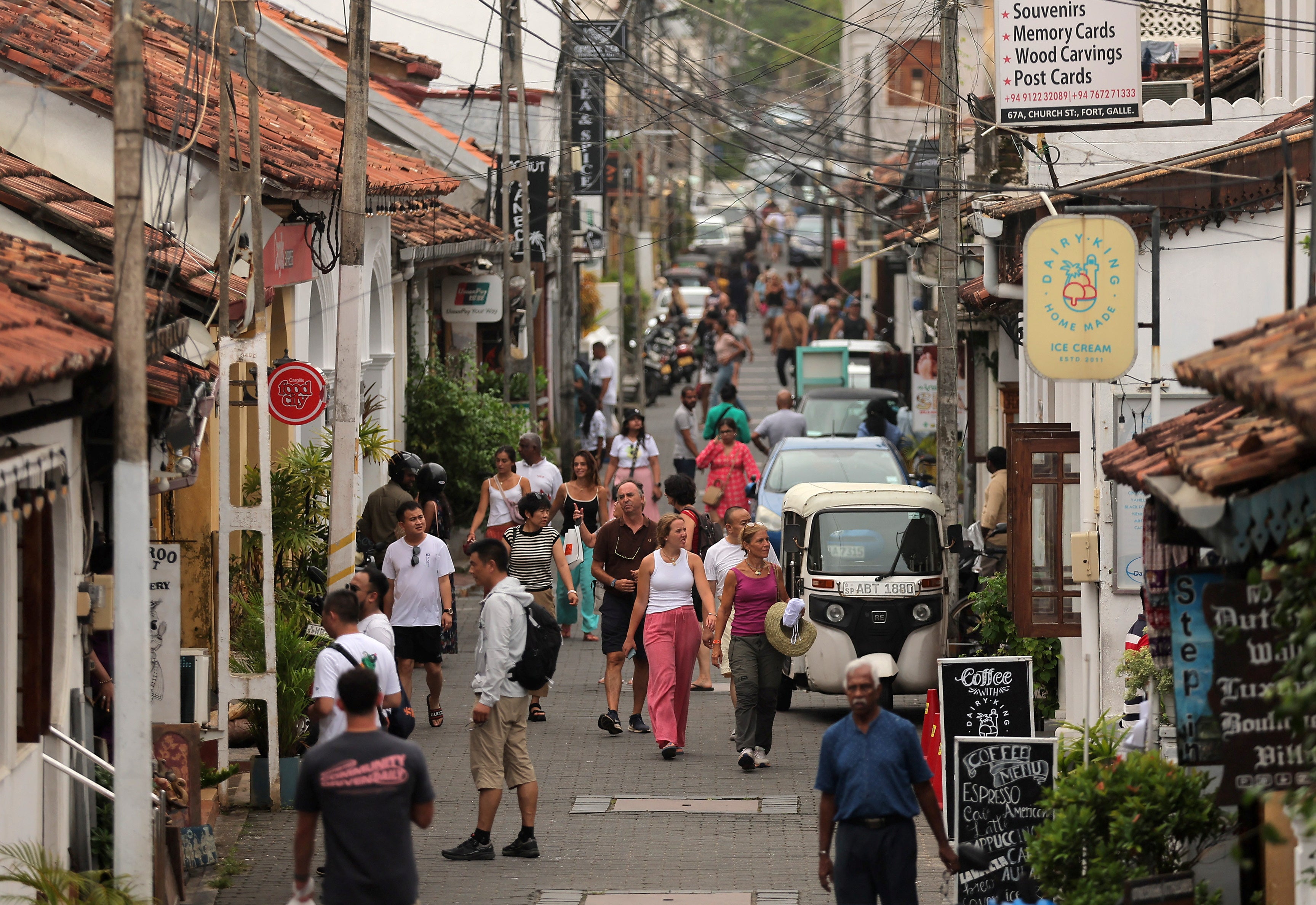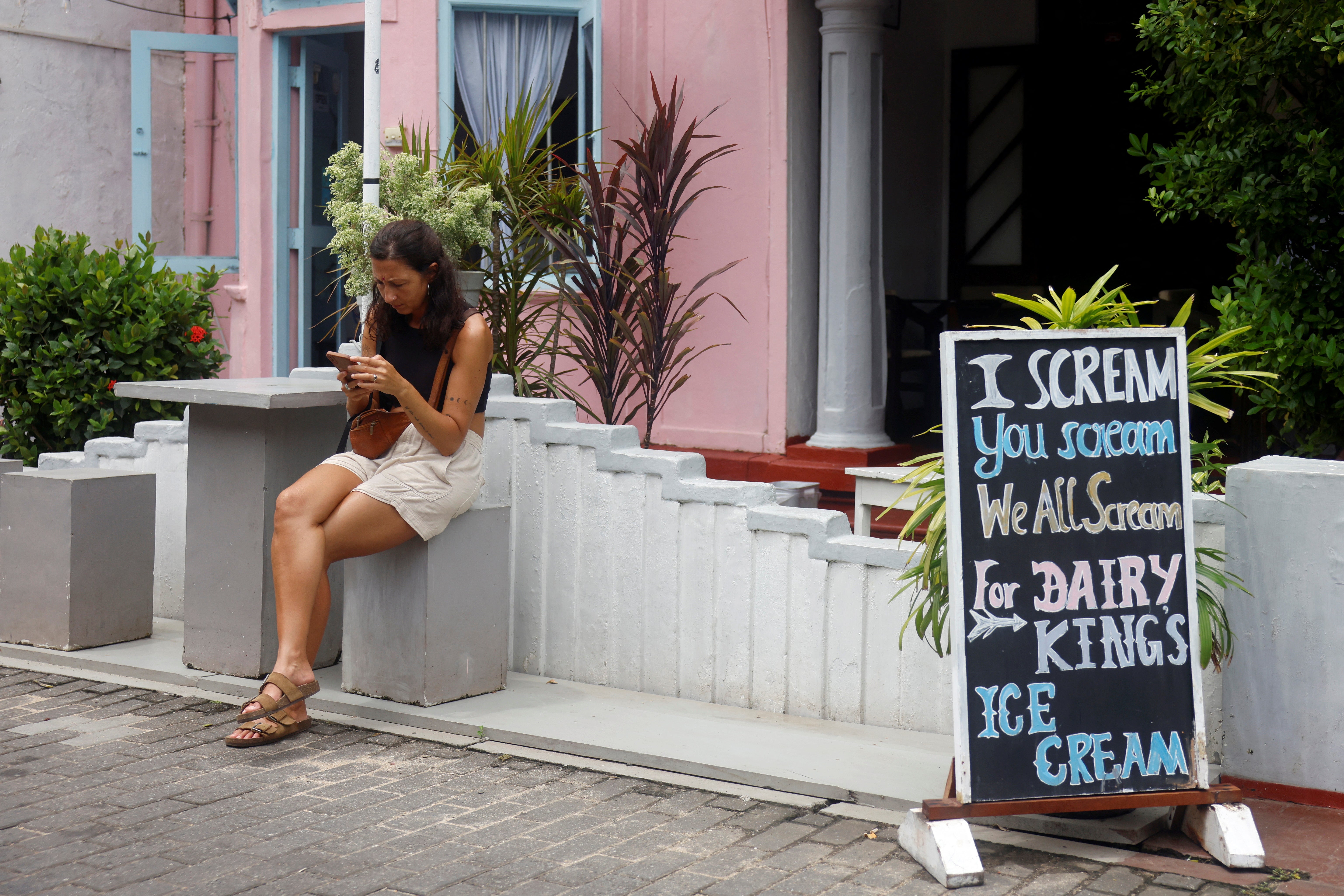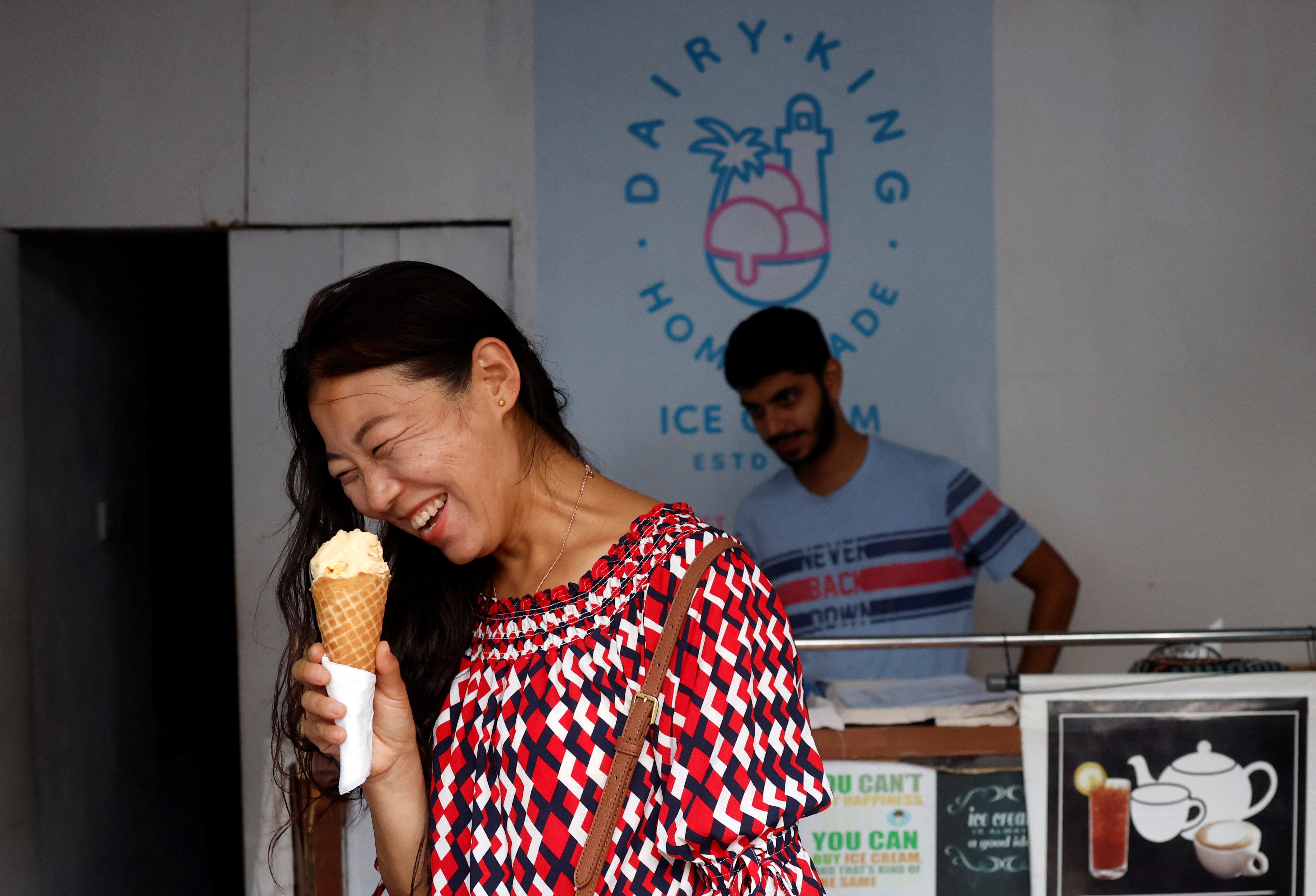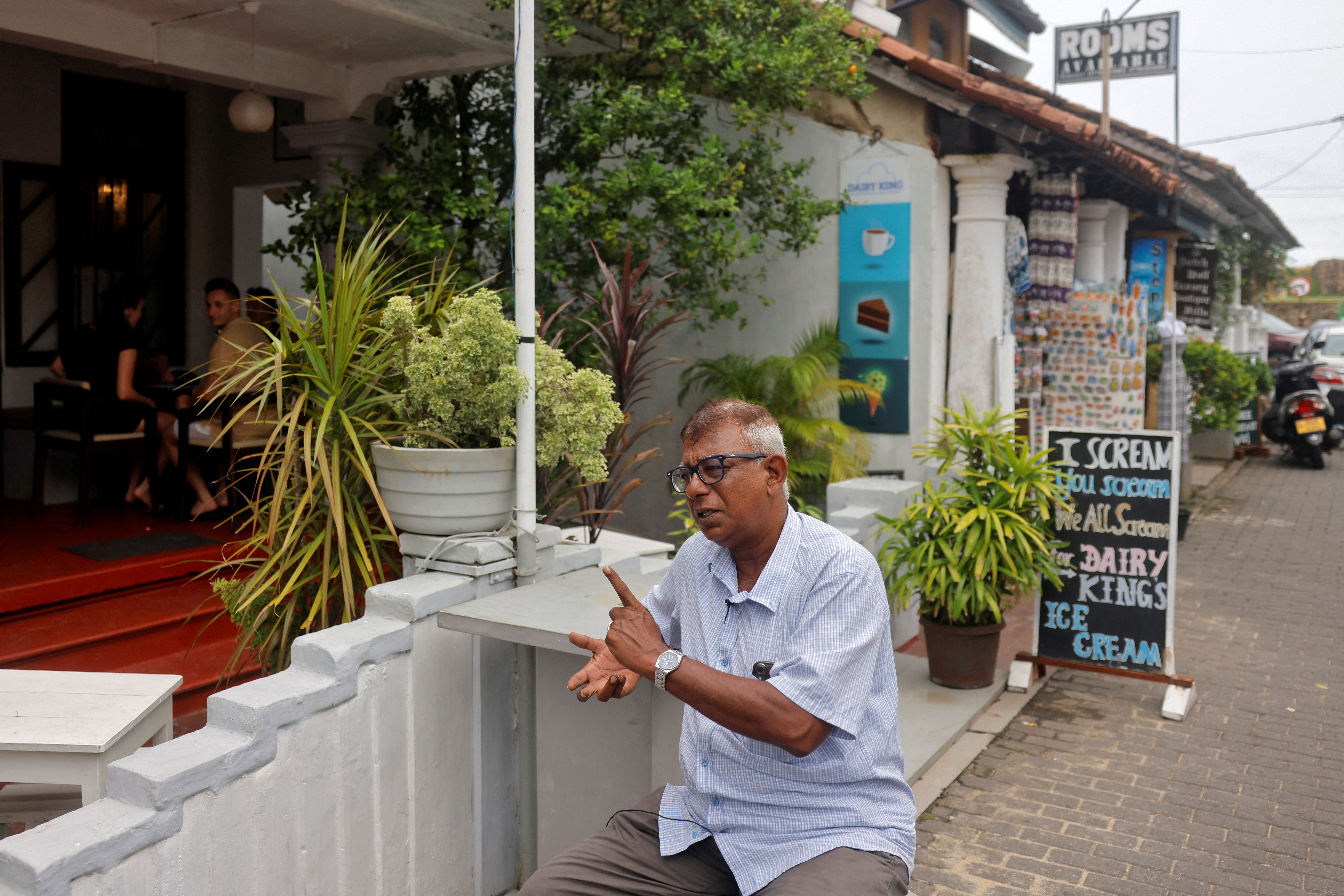The country famed for pristine beaches and ancient temples hoping change can rebuild tourism
Locals are waiting to see a rebound after Covid

Tourists were busy spooning up ice-cream on the verandah of Tariq Nassim’s home at the picturesque Galle Fort in Sri Lanka, the centre of a boom in tourism during the island nation’s recovery from its worst economic crisis in decades.
Nassim’s ‘Dairy King’, which sells 22 flavours of homemade ice-cream, was just one of thousands of businesses crushed by the crisis that erupted after foreign exchange fell to critical lows, squeezing imports of essentials from fuel to fertiliser.
“That was the biggest hit we faced,” said Nassim, 62, whose 13-year-old business was pummelled by the double whammy of the 2022 financial crisis and the earlier Covid-19 pandemic.
“We haven’t been able to get back the pre-Covid business,” he added. “I don’t know when it will come back.”
The route to a firmer rebound for the Indian Ocean island hangs on the reforms and policies that will be adopted by the winner of this month’s presidential election, the first since the economy crumbled.
“The new president must be capable and able to appoint the right people and run the country competently, because we cannot afford any hiccups,” said M. Shanthikumar, president of industry body the Hotels Association of Sri Lanka.

Tourism in the country of 22 million, famed for its pristine beaches, ancient temples and aromatic tea, was crushed as the crisis drove inflation to 70 per cent, power tariffs jumped 65 per cent and the currency depreciated by 45 per cent.
Protests in Colombo by thousands angered at hours of power cuts, queues at fuel stations and hospitals with scarce medicine forced then president Gotabaya Rajapaksa to flee Sri Lanka, though he has since returned.
Prime Minister Ranil Wickremesinghe, elected by parliament to serve out the rest of Rajapaksa’s five-year term, has led a tentative recovery underpinned by a $2.9-billion bailout from the International Monetary Fund (IMF) and restructuring of $25 billion in foreign debt.
Now inflation and interest rates are down to single digits, while growth of 3 per cent is expected in 2024, for the first time since the economy shrank 7.8 per cent during the crisis.

A key contributor to foreign exchange earnings that directly employs 205,000 people, tourism made up 2.5 per cent of gross domestic product (GDP) in 2023. This year, Sri Lanka hopes to earn $3 billion from 2 million tourist arrivals, on par with 2019.
Visitors on Galle Fort’s cobbled streets haggled for silver jewellery with vendors, walked the ramparts and posed for pictures outside colonial buildings.
Although pleased at the rebound, Nassim says his income is still half that before the crisis, as few locals have returned to sample his ice-cream.
He wants the new president to strengthen regulations and make the island a more compelling destination to lure longer-staying big spenders.
Topping industry’s wish list are better facilities, stronger marketing, and streamlined issue of visas.
“Sri Lanka needs foreign exchange and 85 per cent of tourism earnings remain in the country,” said Hiran Cooray, chairman of Jetwing Symphony, which runs about 35 hotels and villas.
“Without doubt safety and stability are most important. If that is lost, then tourism will be a victim.”

The main candidates in the fray, from Wickremesinghe to opposition leader Sajith Premadasa and Marxist-leaning parliamentarian Anura Kumara Dissanayake, have all promised to fix the economy, but take different approaches.
Dissanayake has also promised a new agency to govern and grow tourism, as well as direct flights with countries sending the most tourists and support for mid-level businesses.
Wickremesinghe targets infrastructure upgrades to double arrivals to 5 million within five years.
Premadasa has promised to cut red tape, spur investment, and boost safety for travellers.
“We need growth,” said Shiran Fernando, of business group the Ceylon Chamber of Commerce. “We can restructure debt, we can improve reserves ... but it only keeps the stability going, it doesn’t drive growth.”
Join our commenting forum
Join thought-provoking conversations, follow other Independent readers and see their replies
0Comments